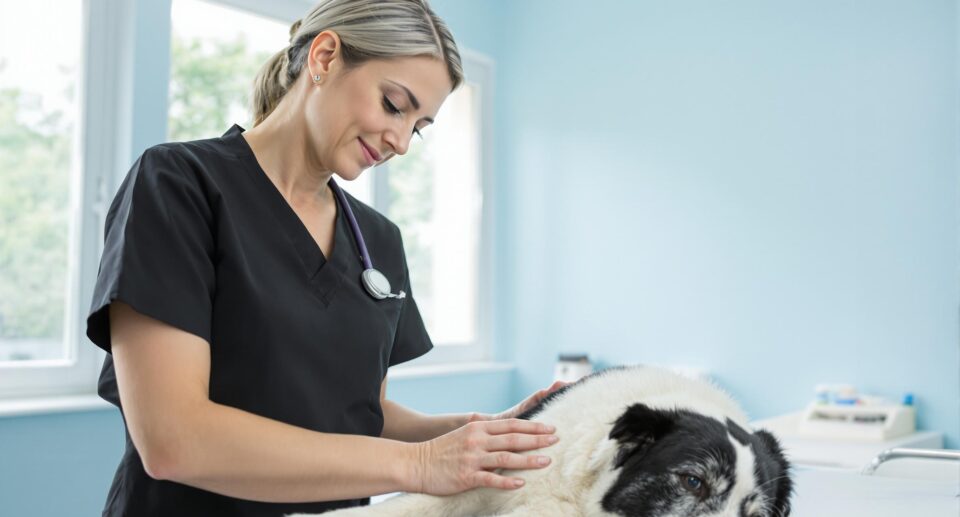What’s A Senior Blood Panel For Dogs?

Whether your dog’s muzzle is grizzled with greys or you’re just thinking ahead, you may be wondering if and when your dog can benefit from senior blood panels. A senior blood panel can detect infections, illnesses, and chronic conditions before your dog even shows symptoms. Regular senior blood panels help you catch health conditions early, and may even add years to your dog’s life.
What’s Included In Senior Blood Panel for Dogs?
Your dog’s blood panel will include a complete blood count (CBC). A CBC shows your veterinarian the status of your dog’s white blood cells, red blood cells, and platelets. If the dog has an unusual number of cells, or if they’re abnormal in appearance, it can indicate an infection, an immune system issue, anemia, some types of cancer, kidney disease, liver disease, or chronic inflammation. Thyroid screening may also be included in your dog’s senior blood panel.
Along with a blood panel, your veterinarian may also have you collect a urine sample. A urine sample can detect diabetes, kidney disease, or a urinary tract infection.
When Should I Start Senior Dog Wellness Visits?
Dogs of different breeds and sizes age at different rates. While a Great Dane might be a senior at age seven, a Chihuahua will likely not start to show any signs of slowing down until eleven years old. The old “rule of paw,” stating that each year is equal to seven “dog years,” is not universally true.
Your dog does not need to show obvious signs of aging before they have their first senior wellness exam, and there is no harm in scheduling it too early. It’s much better to start too soon than to wait until after your dog is already experiencing symptoms of a chronic illness.
How Often Should My Dog Have A Senior Blood Panel?
Depending on your dog’s age and the status of their health, your veterinarian may recommend annual or biannual (twice yearly) testing. Catching an infection or chronic health condition early gives your dog the best chance of a good prognosis.
At your dog’s senior wellness exam, you’ll also have a chance to ask the veterinarian any questions you might have about your dog’s health. Your vet will also pick up on subtle changes that you may not notice if they happen gradually over time, like gradual weight gain or small changes in mobility.
Caring For A Senior Dog
While a senior wellness exam can tell you a lot about your dog’s health, it’s important to take preventative steps in their day-to-day life to help them stay healthy.
As dogs age, they need fewer calories to maintain their energy needs, though they also process nutrients differently and can experience muscle atrophy. They can also have trouble digesting fats and may be more prone to pancreatitis.
A diet with quality sources of lean, highly digestible protein can help them stay in shape. You can feed a commercial fresh raw dog food or cooked food or add fresh ingredients to their senior diet. Freeze-dried raw or dehydrated dog foods are also great for seniors. A fresh diet that’s rich in lean protein can also pique a diminished appetite.
Joint support supplements are a must-have for seniors. They can work as a preventative before your dog starts to show signs of decreased mobility, and they can also help relieve symptoms and slow the progression of joint degeneration. Omega-3 fatty acids have the added benefit of support your senior dog’s cognitive health.
Talk to your veterinarian at your dog’s next senior wellness visit about adding new foods or supplements to your dog’s diet. Your vet can help you make the best choices for your individual dog.





